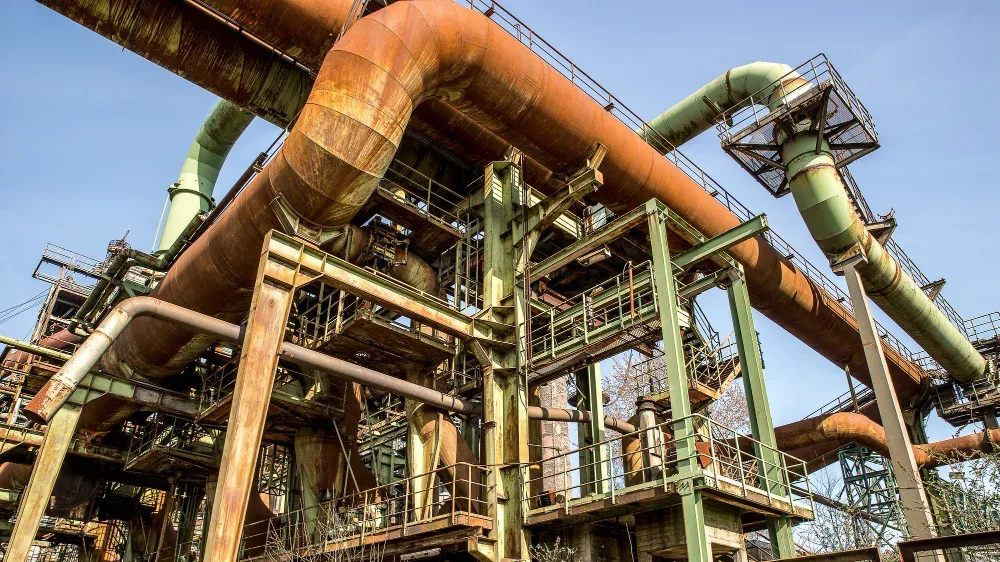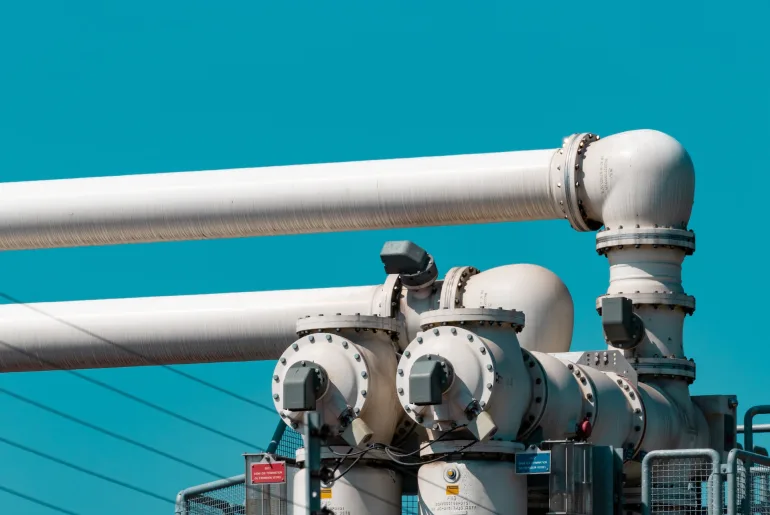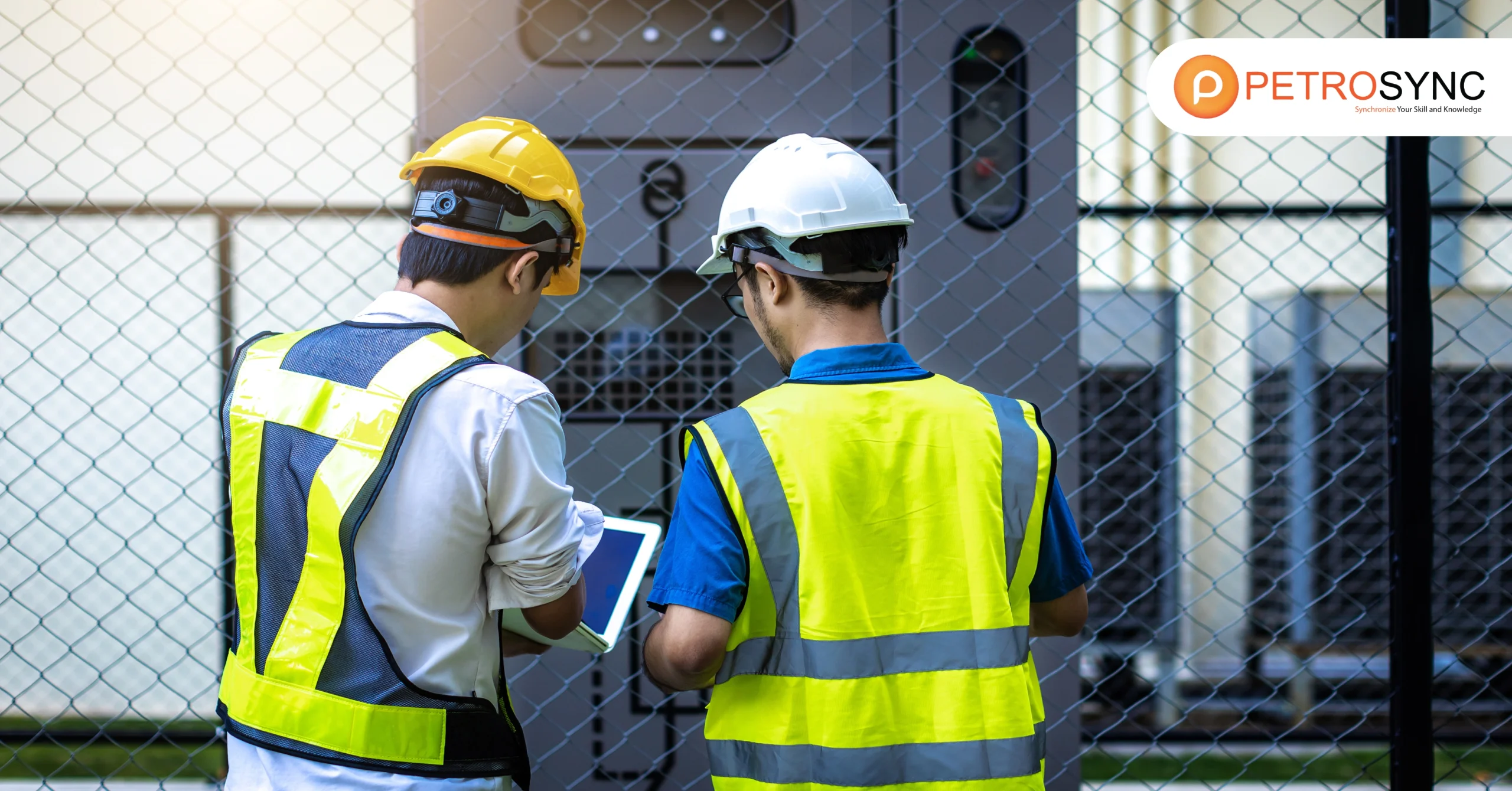Api 570 is having a comprehensive understanding of the API 570 exam and its related information is crucial before registering. Within the industry, API 570 certification holds significant value, especially in the world of piping inspection.
To ensure a successful exam experience, you can familiarize yourself with the exam’s requirements, content, and study materials. In this article, we will cover several pieces of information regarding API 570 exam including the question structure, objective, schedules, and registration fees that you must pay in order to be a certified API Inspector
What Is API 570 Exam?
The API 570 exam is a certification exam offered by the American Petroleum Institute (API). It assesses individuals’ knowledge and skills in inspecting, repairing, altering, and rerating in-service piping systems. The API 570 code provides guidelines and requirements for these activities in industries like refineries and chemical plants.
Obtaining API 570 certification demonstrates that an individual possesses the necessary expertise to ensure the safety and integrity of piping systems. The certification covers a range of topics, including inspection techniques, corrosion, materials selection, welding, and relevant codes and standards.
To qualify for the API 570 exam, candidates must meet specific eligibility criteria, which typically include a combination of education and work experience in piping inspection. The exam itself consists of multiple-choice questions that evaluate a candidate’s understanding of the API 570 code and related subjects.
API 570 certification is often mandatory for professionals involved in inspecting and maintaining piping systems in industries that handle hazardous materials. It ensures that those responsible for inspecting and evaluating piping systems possess the requisite knowledge and skills to maintain safety and regulatory compliance.
How Many Questions Are On The API 570 Exam?
The API 570 exam takes place over the course of 7.5 hours, which includes a brief tutorial session, 2.75 hours for the closed-book section, a 45-minute lunch break, and 3.75 hours for the open-book section.
You will encounter a total of 170 questions on the exam, but only 140 of them will be counted toward your score. It is important to remember that 110 questions are in the closed-book section and the rest 60 questions are in the open-book section.
What Are API 570 Exam Objectives?
The objectives serve as a comprehensive framework for evaluating your knowledge and proficiency in conducting inspections and ensuring adherence to API 570 standard to maintain the integrity of piping systems.
1. General Knowledge and Codes
Acquiring a solid understanding of the API 570 code and other relevant codes, standards, and regulations that are pertinent to piping systems.
2. Inspection Planning and Scheduling
Developing plans and schedules for inspections of piping systems in a well-organized manner.
3. Inspection Techniques
Familiarizing oneself with different methods and techniques used to inspect piping systems effectively.
4. Corrosion and Damage Mechanisms
Gaining knowledge about various types of corrosion and damage mechanisms that can impact the integrity of piping systems.
5. Material and Welding
Understanding the materials utilized in piping systems and the welding procedures employed during construction, repair, and alteration processes.
6. Repair and Alteration
Knowing the procedures and requirements for repairing, altering, and rerating piping systems.
7. Inspection Records and Reports
Grasping the procedures for documenting and reporting inspection findings and recommendations accurately.
8. Pressure Testing
Understanding the methods of pressure testing piping systems after repairs, alterations, or rerating.
Safety and Environmental Considerations
Being aware of safety practices and environmental concerns associated with maintenance inspections and related activities.
Quality Control and Quality Assurance
Recognizing the principles of quality control and quality assurance in the inspection and maintenance of piping systems.
Enrolling in PetroSync’s API 570 training course offers a comprehensive opportunity to cover all the objectives mentioned above following the API 570 Body of Knowledge. Our training is specifically designed to provide you with both theoretical and practical knowledge.
Through a combination of informative learning, practical demonstrations, and interactive discussions, you will gain a deep understanding of inspecting, repairing, altering, and rerating in-service piping systems, as specified in the API 570 code.
When Is The Schedule for The API 570 Exam?
The schedule of the API 570 exam can differ based on factors such as application deadlines and available dates. The official API has outlined the following schedule details for the API 570 exam certification:
|
Exam Window |
Program | Schedule |
Application Deadline |
|
February 7 – 28, 2025 |
API 570 | 6.5 hours | December 6, 2024 |
|
June 6 – 27, 2025 |
API 570 | 6.5 hours | April 4, 2025 |
| October 10 – 31, 2025 | API 570 | 6.5 hours |
August 8, 2025 |
| October 11 – November 1, 2024 | API 570 | 6.5 hours | August 9, 2024 |
| June 7 – 28, 2024 | API 570 | 6.5 hours | April 5, 2024 |
| February 9 – March 1, 2024 | API 570 | 6.5 hours | December 8, 2023 |
How Is The API 570 Exam Procedure?
The API 570 exam procedure consists of several important steps that you need to follow in order to obtain certification. Here is a brief overview of the API 570 exam procedure:
1. Eligibility
To be eligible for the API 570 exam, candidates must meet the requirements set by the API, which typically involve a combination of education and work experience in piping inspection.
2. Application
Candidates need to submit an application form along with the necessary documents and fees within the specified application period. The API carefully reviews the applications to determine if the candidates meet the eligibility criteria.
3. Examination Window
Once the application is approved, candidates are provided with a designated examination window. This window represents a specific timeframe for scheduling and taking the API 570 exam.
4. Exam Format
The API 570 exam consists of multiple-choice questions and is divided into two sections: a closed-book section and an open-book section.
5. Closed-Book Section
In this section, candidates are not permitted to refer to any reference materials. They are expected to rely solely on their knowledge and understanding of the API 570 code and related subjects.
6. Open-Book Section
In the open-book section, candidates are allowed to use relevant codebooks, standards, and other reference materials. This section evaluates their ability to navigate and apply information from these resources effectively.
7. Exam Duration
The API 570 exam has a set time limit. Candidates must manage their time wisely to complete both the closed-book and open-book sections within the allocated timeframe.
8. Scoring
The exam is scored based on the number of correct answers provided by the candidates. The API determines the passing score for the exam.
9. Results
Once candidates have completed the exam, they receive their results. If they achieve a passing score, they are awarded the API 570 certification.
It is crucial for candidates to have a clear understanding of the API 570 exam procedure and follow the guidelines provided by the API throughout the process to ensure a successful and valid examination experience.
What Are The Exam Publications Effectivity Sheet of API 570?
To stay updated with the latest requirements and revisions, it is essential for you to know the API 570 publications effectivity sheet. This sheet outlines the relevant documents and edition numbers applicable for the examination, ensuring that you are aware of the most recent information. Below are the standards and the section mentioned according to API 570 exam publication:
API Standard 570
Piping Inspection Code: Inspection, Repair, Alteration, and Rerating of In-Service Piping Systems 4th Edition, February 2016 with:
- Addendum 1 (May 2017)
- Addendum 2 (March 2018)
- Errata 1 (April 2018)
API Recommended Practice 571

Damage Mechanisms Affecting Fixed Equipment in the Refining Industry, 3rd Edition, March 2020. Only the following sections/mechanisms from RP 571 are included on the exam:
- Section 2 Terms and Definitions
- Par. 3.3 Amine Stress Corrosion Cracking
- Par. 3.8 Atmospheric Corrosion
- Par. 3.9 Boiler Water and Stream Condensate Corrosion
- Par. 3.14 Caustic Corrosion
- Par. 3.15 Caustic Stress Corrosion Cracking
- Par. 3.17 Chloride Stress Corrosion Cracking
- Par. 3.22 Corrosion Under Insulation
- Par. 3.27 Erosion/Erosion – Corrosion
- Par. 3.31 Galvanic Corrosion
- Par. 3.37 Hydrochloric Acid Corrosion
- Par. 3.43 Mechanical Fatigue (Including Vibration-induced Fatigue)
- Par. 3.45 Microbiologically Influenced Corrosion
- Par. 3.57 Soil Corrosion
- Par. 3.58 Sour Water Corrosion (Acidic)
- Par. 3.61 Sulfidation
API Recommended Practice 574
Inspection Practices for Piping System Components, 4th edition, November 2016.
API Recommended Practice 577
Welding Inspection and Metallurgy, 2nd Edition, December 2013
API Recommended Practice 578
Material Verification Program for New and Existing Alloy Piping Systems, 3rd Edition, February 2018.
ASME B16.5 Pipe Flanges and Flanged Fittings, 2017 Edition
ASME B31.3, Process Piping, 2016 Edition
ASME Boiler and Pressure Vessel Code 2017 Edition
- Section V, Nondestructive Examination, Articles 1, 2, 6, 7, 9, 10, and 23 (Section SE-797 only).
- Section IX, Qualification Standard for Welding, Brazing and Fusion Procedures; Welders; Brazers; and Welding, Brazing and Fusing Operators, (Welding only)
PetroSync: Your Guide to Acing the API 570 Certification Exam
Taking API 570 course with PetroSync is an excellent preparation strategy for you before taking API 570 exam, as it covers all the topics outlined in the exam’s effectivity sheet and API 570 Body of Knowledge (BOK). PetroSync offers a comprehensive learning experience that encompasses the essential aspects of the API 570 code.
Through our most sought training course, you will delve into a wide range of subjects, including inspection techniques, repair and alteration procedures, corrosion mechanisms, welding processes, and adherence to relevant codes and standards.
By aligning our curriculum with the effectivity sheet of the API 570 exam, we ensure that you can receive the necessary knowledge and skills required to excel in the examination. Equips yourself with a solid foundation of API 570 and pass the exam confidently with PetroSync’s API 570 training!

Results-oriented and thorough SEO specialist with extensive experience in conducting keyword research, developing and implementing digital website promotion strategies and plans, managing campaigns to develop company websites in the digital world, excellent knowledge of marketing techniques and principles, and attentive strong attention to detail.







